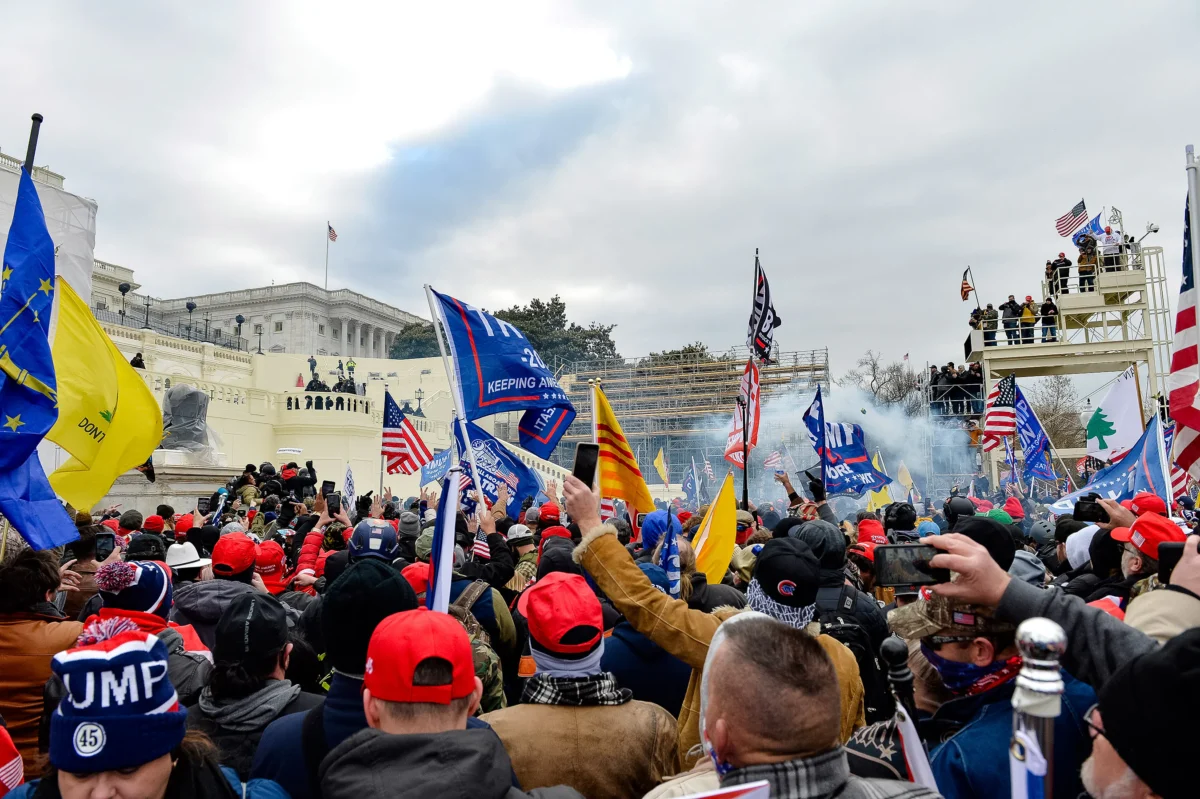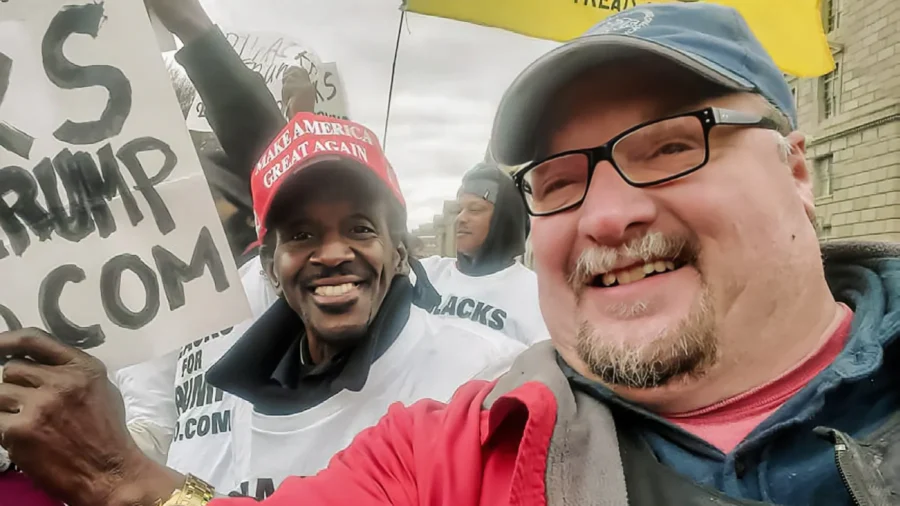The Supreme Court’s ruling that the federal government should not have used an accounting law to charge Joseph Fischer with obstruction of an official proceeding for briefly entering the U.S. Capitol on Jan. 6, 2021, will affect prosecutions involving other Jan. 6 defendants, lawyers told The Epoch Times.
Lawyers said those defendants who have not yet been convicted or whose appeals have not yet been exhausted may do better in court due to the new ruling than those who have already been sentenced under the obstruction law. The government said that all Jan. 6 defendants charged with obstruction were also charged with other offenses.
Some federal judges aren’t waiting until the ink is dry on the Supreme Court decision.
Federal Judge Dabney Friedrich in Washington issued an order the day of the ruling directing prosecutors and Jan. 6 defendant Guy Wesley Reffitt to submit a proposed schedule “for further proceedings in light of Fischer v. United States” by July 5, according to the federal district court’s docket.
Mr. Reffitt of Wylie, Texas, was sentenced to 87 months in prison in August 2022 on five charges, including two counts of civil disorder and one count each of obstruction of an official proceeding, entering and remaining in a restricted building or grounds with a firearm, and obstruction of justice.
The new Supreme Court decision is expected to make it more difficult for the federal government to prosecute those charged in connection with the Capitol security breach that took place as Congress was attempting to finalize the 2020 presidential election results. It is also likely to make it tougher for the federal government to continue with its Jan. 6-related obstruction-of-an-official-proceeding case against former President Donald Trump.
The nation’s highest court ruled on June 28 that a provision in the Sarbanes-Oxley Act, 18 U.S. Code Section 1512, which focuses on ensuring that documentation is made available for official proceedings, did not apply to the case.
The evidence-tampering legislation came in the wake of fraud-related scandals at Enron Corp. and other major corporations in the early 2000s. Enron employed dubious accounting practices to conceal falling profits and exaggerate earnings, and its employees reportedly began destroying paperwork when they learned that indictments were in the works.
Previously, in federal district court, Mr. Fischer, a former police officer from Jonestown, Pennsylvania, moved to dismiss the obstruction count, arguing that he didn’t interfere with access to any documents. His lawyer at the time said that the legal provision “criminalizes only attempts to impair the availability or integrity of evidence.”
That court granted the motion, finding the scope of the statute only applied if the defendant had taken “some action with respect to a document, record, or other object.”
However, a divided panel of the U.S. Court of Appeals for the District of Columbia Circuit reversed it, and Mr. Fischer appealed to the Supreme Court.
On June 28, Chief Justice John Roberts wrote in the Supreme Court’s 6–3 opinion that the government relied on a “novel interpretation” of the statute that swept too broadly.
That interpretation would criminalize innocent actions by lobbyists and peaceful protesters whose actions might have an impact on an official proceeding and subject them to 20 years in prison, he wrote.
Justice Ketanji Brown Jackson filed a concurring opinion in which she agreed with the majority that Section 1512(c)(2) of the Sarbanes-Oxley Act “does not reach ‘all forms of obstructive conduct.’”
Following the ruling, U.S. Attorney General Merrick Garland downplayed its significance while vowing to honor it.
“The vast majority of the more than 1,400 defendants charged for their illegal actions on January 6 will not be affected by this decision,” he said in a statement.
“There are no cases in which the Department [of Justice] charged a January 6 defendant only with the offense at issue in Fischer. For the cases affected by today’s decision, the Department will take appropriate steps to comply with the Court’s ruling.”
Mr. Fischer’s attorney, Jeffrey T. Green of Green Law Chartered in Bethesda, Maryland, previously criticized the Department of Justice for using the law against his client, saying it was an inappropriate vehicle to prosecute people who were exercising their First Amendment right to protest the congressional certification of election results.
Mr. Green told The Epoch Times hours after the ruling was issued that Mr. Fischer’s case will now return to the D.C. Circuit, and the obstruction charge against him will almost certainly be dismissed.
The ruling will also “help any of the January 6 Capitol breach defendants whose cases are not yet final—in other words, whose appeals are not exhausted,” he said.
Others currently charged under the same obstruction provision may also have their charges dismissed, but those whose convictions have been finalized will have a tougher time, he said.
Applying a Supreme Court ruling retroactively against individuals who have already been convicted is “very complicated,” Mr. Green said.
They will have to resort to habeas corpus petitions, he said.
Habeas corpus, Latin for “bring the body,” refers to a process used in court to inquire into the lawfulness of the restraint of a person who is already imprisoned or detained.
Although some defendants may enjoy success, “this is a very tough bar to reach,” he said because habeas petitions are “unpredictable and difficult,” especially in cases involving statutory interpretation.
“So I don’t think this is going to result in the wholesale reversal of a lot of convictions and sentences for January 6 defendants,” he said.
“It will depend on what happens during the habeas proceedings.”
Mr. Fischer is still facing other federal charges that are not affected by the Supreme Court ruling, including forcibly assaulting a federal officer, entering and remaining in a restricted building, and engaging in disorderly and disruptive conduct in the U.S. Capitol. Those counts carry maximum penalties ranging from six months to eight years in prison.

Criminal defense attorney and former deputy district attorney David Gelman of Gelman Law in Cherry Hill, New Jersey, said the “obstruction charge goes away” for defendants whose charges are still pending.
Prosecutors may choose to amend or replace indictments and charge defendants with something else in place of the obstruction charge, he told The Epoch Times.
Lawyers for individuals who have been convicted will have to have “some really good legal arguments,” he said.
They will have to appear in court and argue that the Supreme Court ruling means that the obstruction evidence was irrelevant and “should never have come into” their trial and that they did not receive a fair trial, Mr. Gelman said.
They may have to seek a retrial or enter a plea to another charge, he said. “That’s what a lot of them will do.”
For those who are still incarcerated, they could be re-sentenced to time served, he said.
“I would argue for time served, but who knows how that’s going to play out.”
Courts will take it upon themselves to reopen cases in light of the Fischer ruling, he said.
“When you’re charged with a count that is illegal, like hundreds of these people have been, that’s a due process violation and obviously an illegal sentence,” Mr. Gelman said.
From The Epoch Times

